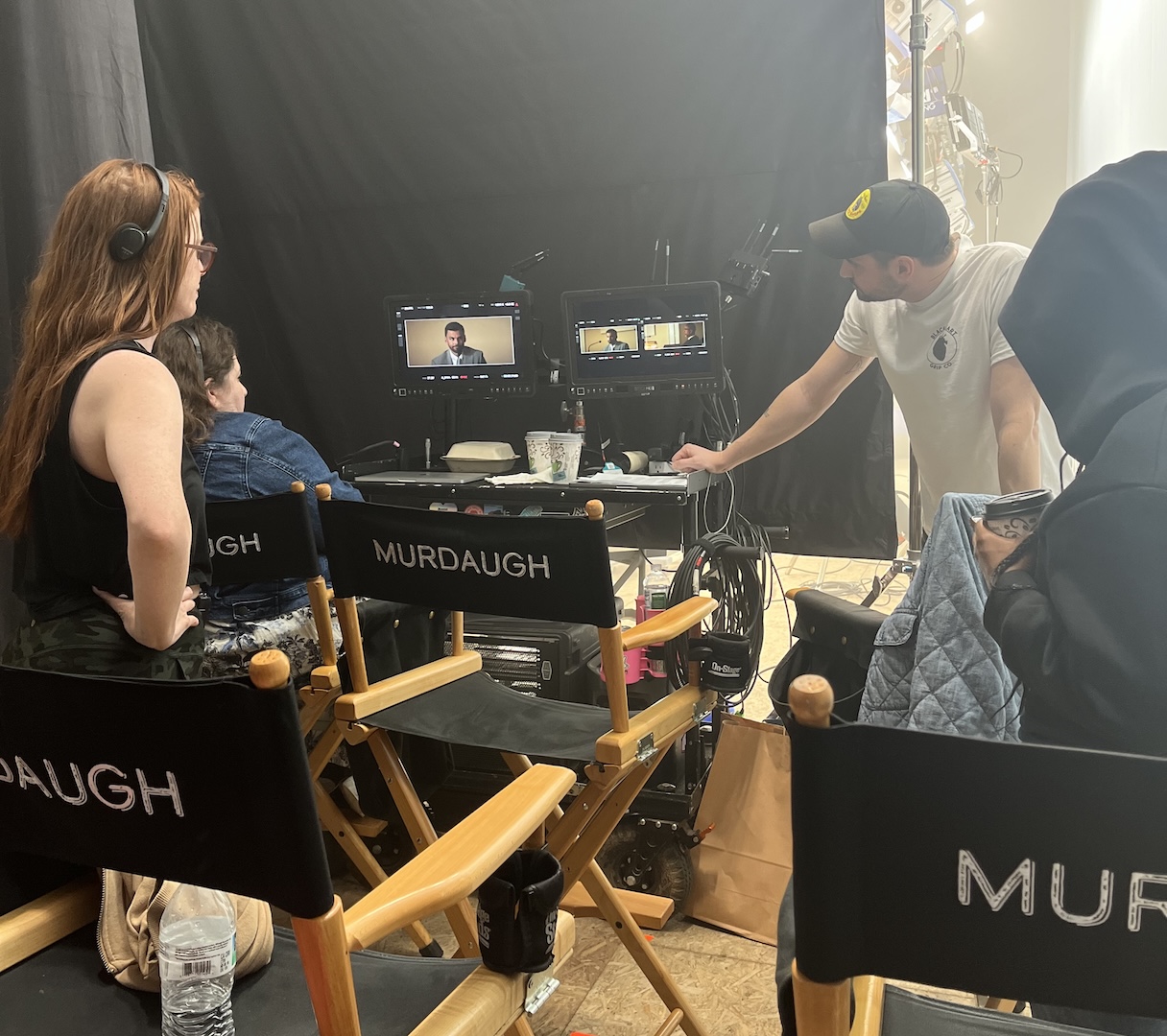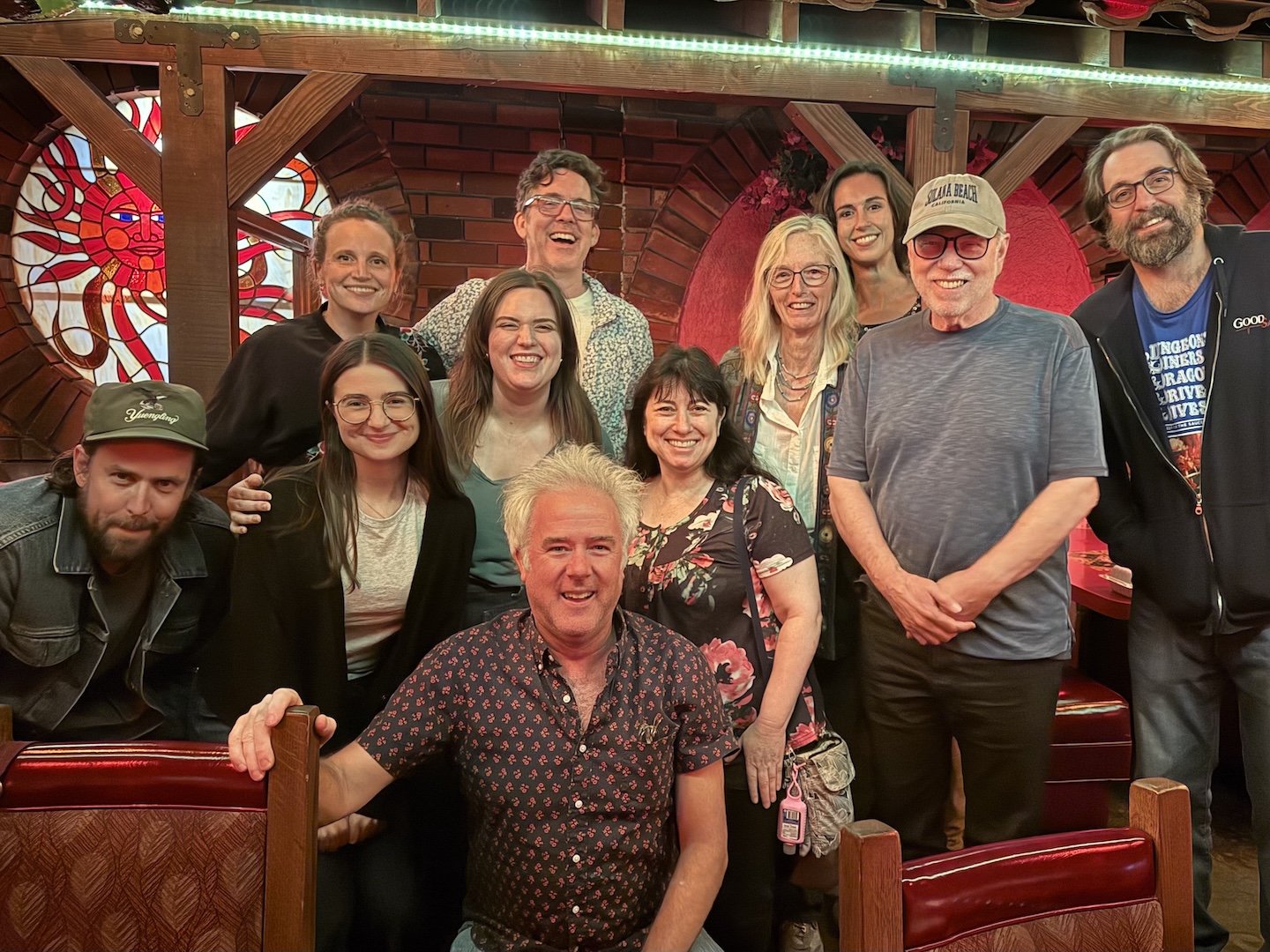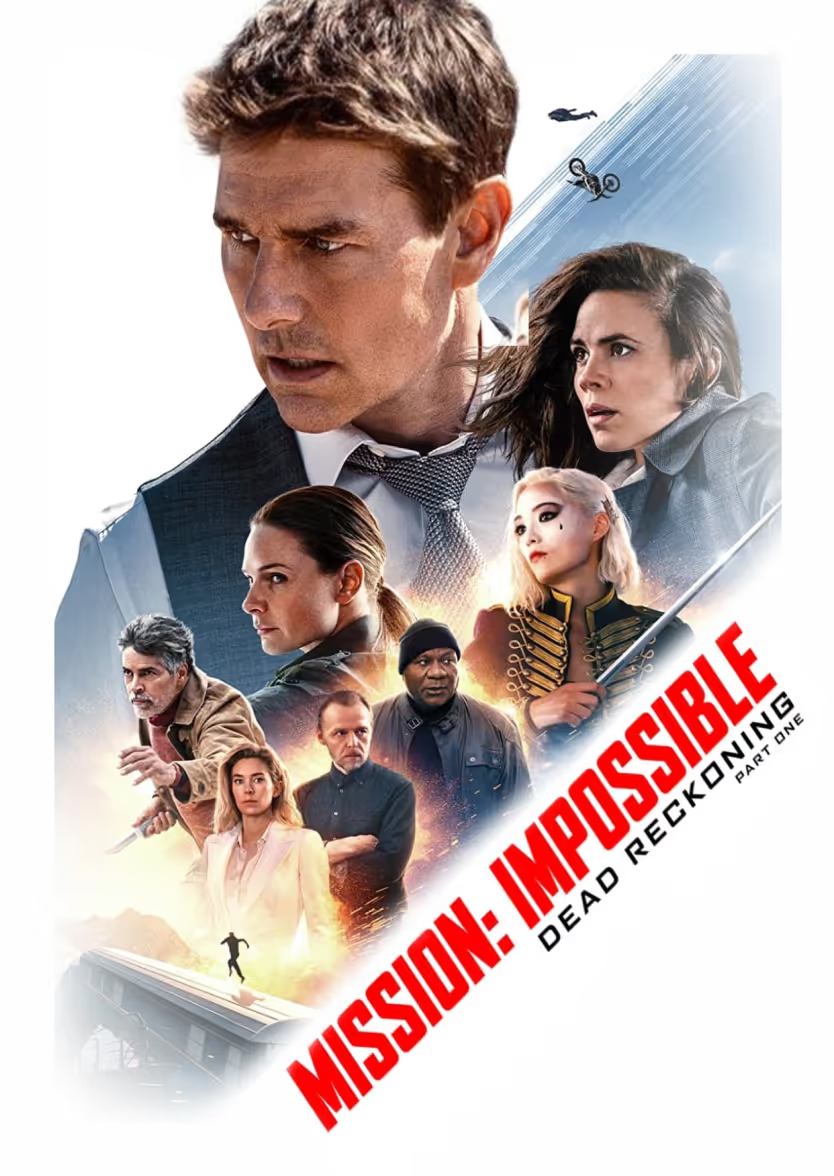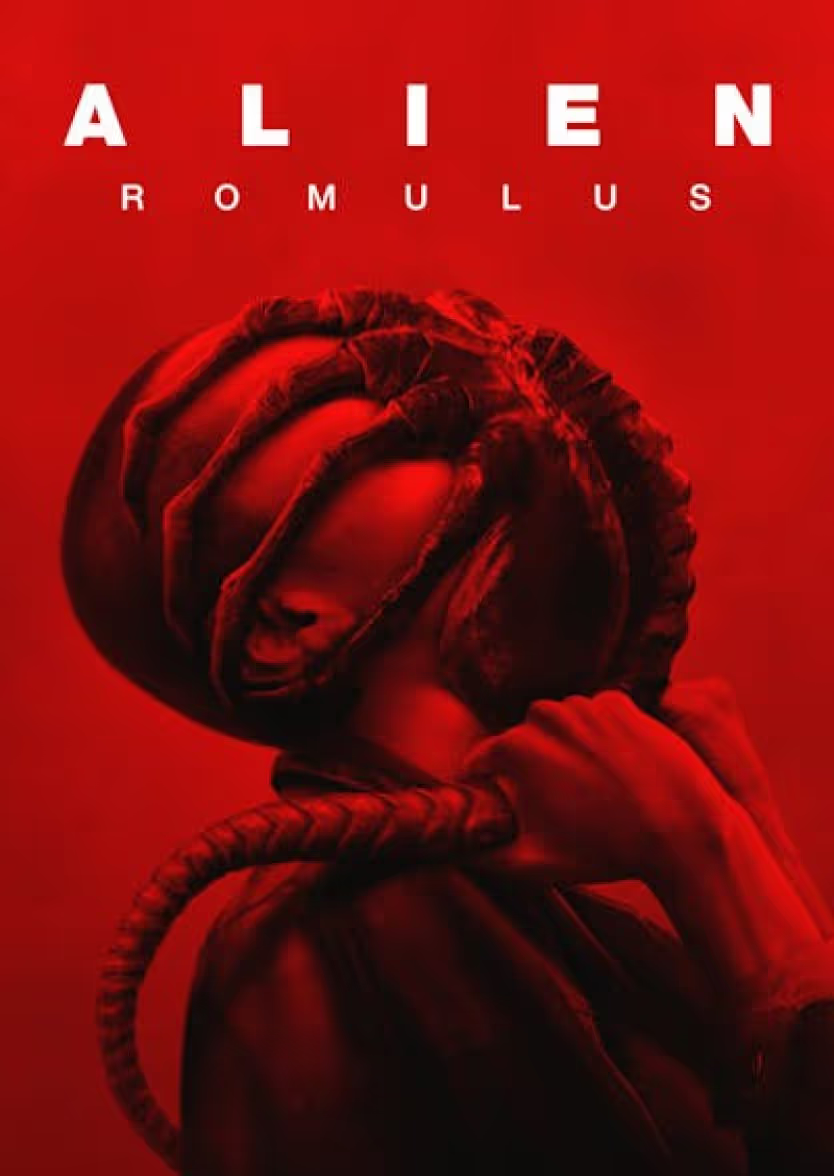Telling the story of Murdaugh: Death in the Family meant more than recounting a true-crime saga. It required accuracy, sensitivity, and respect for the real people and places involved. With no central office and a post team spread all throughout the country, post supervisor Geneva Willis managed an entirely remote post-production effort, keeping everyone aligned with these goals and on track for delivery. From fine-tuning delicate VFX recreations to collaborating on sound and music spotting sessions that shaped the emotional core of the series, the team relied on Evercast as their round-the-clock virtual post house.
This interview has been edited for length and clarity.
Tell me a bit about Murdaugh: Death in the Family.
Geneva: Murdaugh: Death in the Family covers the events leading up to the crime that we are all probably familiar with—the death of Maggie and Paul Murdaugh—at the hands of the father and husband, Alex Murdaugh. We definitely don't excuse any of the actions of the family members, but it does explain how someone could go from a “normal” person to somebody who would contemplate that. I think we have a lot of empathy for Maggie, Paul, Buster, and the other victims involved.
What do you think separates this series from others in the genre?
Geneva: I would say, the care and sensitivity I saw from all of our producers and writers, who went above and beyond to make sure everything was as accurate and as true-to-life as possible. Our showrunner, Michael D. Fuller, is from South Carolina, just a couple hours from where everything took place, so it was very important to him to represent his home state and his local culture as accurately as possible. And that ethos carried across the production, from prep all the way through post-production. We all wanted everything to be as accurate as possible, to serve the story to the best of its ability, as well as the memory of all these people who were victims of Alex Murdaugh.
How do you think that manifested in post-production specifically?
Geneva: Once we got the footage, we were just editing around the clock, and everybody was [meticulous], especially in visual effects. At some point you do have to portray the murder night, and we wanted to make sure all those visual effects were accurate, sensitive, and served the story without sensationalizing. So it was very important that we were all together in the same place. Texting can only do so much—sometimes you have to talk to a person, be able to point to something specifically that you want changed or moved. So many details, like changing a sign of a grocery store to reflect the real location. All the environmental stuff, set deck, design … We really took the time and care to make sure that the viewer experience matched what the writers intended when they began this project.
Where was it shot?
Geneva: They shot in Atlanta, so we had to recreate the “Low Country” in South Carolina. There’s one particular sequence we were very proud of in episode two. There are these marshes that are very particular to South Carolina. You know, there’s what a Louisiana Marsh looks like, versus the Everglades in Florida, versus the Low Country marshes—there's a particular look you have to hit. You can't really fake that. We went through so many variations, and we’d hop on Evercast and talk it through. Also, when we portrayed the events leading to the death of Mallory Beach, the bridge where we filmed obviously does not look like the actual bridge. So that was a whole visual effects effort as well. And again, we popped on Evercast to talk it through with our visual effects vendor, Mr. Wolf, because it was important to everybody that we get this right and be as accurate as possible.

Was there anything particularly unique about post-supervising this project compared to others you’ve worked on?
Geneva: Well, for one, we did not have an office. We were fully remote—editorial, visual effects, everybody. I've been very privileged to work on a lot of big projects, some effects-heavy international shows, and generally those bigger shows have been in-person, just because of ease of communication. This show was not, for various reasons, but I think everyone's gotten better about communicating since the pandemic. We were all talking on Slack, we had our text message chains, etc. You know, you can hop on a phone call, but sometimes you just need to talk to your people and bond and understand where they're coming from.
Other than that, it was the usual things, budget and schedule, which every project faces. You always want more time. You always want more budget. There was less shooting time than we would have liked. There were fewer editorial days than we would have liked. The post schedule was smaller than we would have liked. We had to be very specific about what we wanted to spend money on to get the most bang for our buck when it came to the viewing experience. But again, the project was important to everybody, and so we really overly communicated and made sure it got done within the timelines given to us by the studio.
So how did Evercast come into play?
Geneva: Well, Evercast is great. We were on another platform at first, and bless his heart, our pilot director was really struggling through it. It was just not an efficient experience because he only had so many days before he had to be back on set, and we were spending half the day with technical issues on the other platform. We needed to stay on schedule and realized that this was going to start having ripple effects. We couldn’t afford to be messing around with something that's not working. On my team, we'd all had great past experiences with Evercast. So we reached out, and within about two hours, we were online with Evercast, working with the director and were able to salvage that day. By lunchtime, we had turned it around so he could get an edit done. We were able to stay on schedule and on course. That was amazing. Whenever I have a new editor who, for some reason hasn't used Evercast, I always describe it like, “Evercast is literally our office. Log in, you're in the hallway, and every room is your edit room. This is the equivalent of me knocking on your door and coming in your edit bay to ask you a question.” Everyone works differently, but our showrunner was oftentimes hopping from team to team within the same day, so it was easier for them just to leave their cameras on while working, so he could just hop in and talk to them. Sometimes you don't want to type something out for 10 minutes; it's easier just to talk it through.
Because we were all remote, the best way for everybody to conjoin when it came time for sound and music spotting sessions also was on Evercast. Zoom can do a lot of things, but it just cannot cut it when it comes to streaming directly from your Avid. it's just not going to have the same fidelity of picture or sound. So we all would hop on Evercast and that was really efficient for us, because we could do combo sound/music spots to make the best use of everybody's time. Evercast always worked for us, and it was dependable. While sometimes the show was difficult, at least the platform we were working on didn't give us technical issues on top of that.
Where was everyone geographically?
Geneva: Editorial and post were all in the Los Angeles area. Our showrunner was also Los Angeles-based, but he had travel obligations, so sometimes he was on the East Coast. Our directors are working, of course, so they're all over the country. So it helped a lot to know that everybody could get on Evercast and talk when they needed to. We didn't have to fuss with Zoom or or make a new link—you just hop in and there you go. We did have directors who were on set in Atlanta directing multiple episodes for the season, so I remember one time I was there for a set visit and a director was holed up in her office, working with my editor in LA via Evercast. So people were able to keep doing their prep work on set and also work with the editor for their director's cut.

What do you think was the greatest value that Evercast brought to the production?
Geneva: It was definitely cost effective; it saved us a lot of issues down the line, just being able to hop on and communicate with ease. It kept the momentum going. As I said, it saved us a director day that would have impacted the schedule. I remember back when directors would fly in if they were out of town for their director days. When I think back to booking travel for directors, versus now where you can just hop on Evercast, we're definitely saving costs on hotels, flights, per diems, etc. compared to the monthly fee for Evercast—no matter how you cut it. But most of all, it was a brisk schedule with a lot of stress points along the way, and it was nice to know Evercast is something I don't have to worry about. It will just work the way it's supposed to—which is not something to undersell in this age of technology!
Oh and another thing that was valuable, especially when we were doing spotting sessions, is the ability to draw on your screen. Instead of saying, “See that black thing next to the shadow…” you could actually point to something and say, “Please fix this.”
Do you have any BTS fun facts about the production of Murdaugh: Death in the Family?
Geneva: Typically, songs are an afterthought, once you know what money you have left to buy things. But a lot of our songs were included from the script level. I remember getting scripts and thinking, “I've never seen this before”: our showrunner included QR codes for playlists, so we could all listen to the music as we were reading the script and start to visualize what the edit would look like. That was such a cool detail.
As for post, in episode five, there's a watermelon festival, but we only purchased, like, 20 watermelons. I don't know the exact number, but there was not a lot of watermelon. We just couldn’t get more—it was not high summer when watermelons are in season. So we had to use them strategically. We just kept moving them around so it looked like there were more than there were. Also in that episode, you might notice some extras repeating. We have an internal show canon that there are a lot of twins in that county.
And another crazy fact is that a lot of the costumes you see are based on actual things they wore. For example, when [the real] Alex Murdaugh was arrested, he was actually wearing a black-and-white striped shirt, like a prisoner uniform. I just could not get over that foreshadowing in real life. When I saw it in the footage, I was like, “That's a little on the nose,” but then I found out it was actually real. Just so many Easter eggs like that. People are weird. People do weird things. That's what I've learned!
Zooming out a bit, what would you say is the best piece of advice you've ever received about the craft, about the business, whatever it might be?
Geneva: The best piece of advice I ever got was when I was starting out, and it still applies even now. When you have the benefit of choosing which projects you want to work on, go for the one that has the team that you know you will have the best time with—because the hours are long, the work is hard. We love the work, but the work is hard, and it's the people you're going to spend your time with that determine your quality of work and your quality of life. That has proven correct time and time again. The team members I’ve worked with on difficult shows, we've been in the trenches together. We come out with great bonds and friendships, and I continue to work with a lot of those people today. My associate producer on this show, Gala Goliani, and I worked together for the first time on Catch 22, when I was a post production assistant and she was my post coordinator. Because that team was so amazing, I continued to choose projects where I got to work with them, and that led to better work experiences.

Create together remotely, in real time
















.avif)









.avif)


.avif)